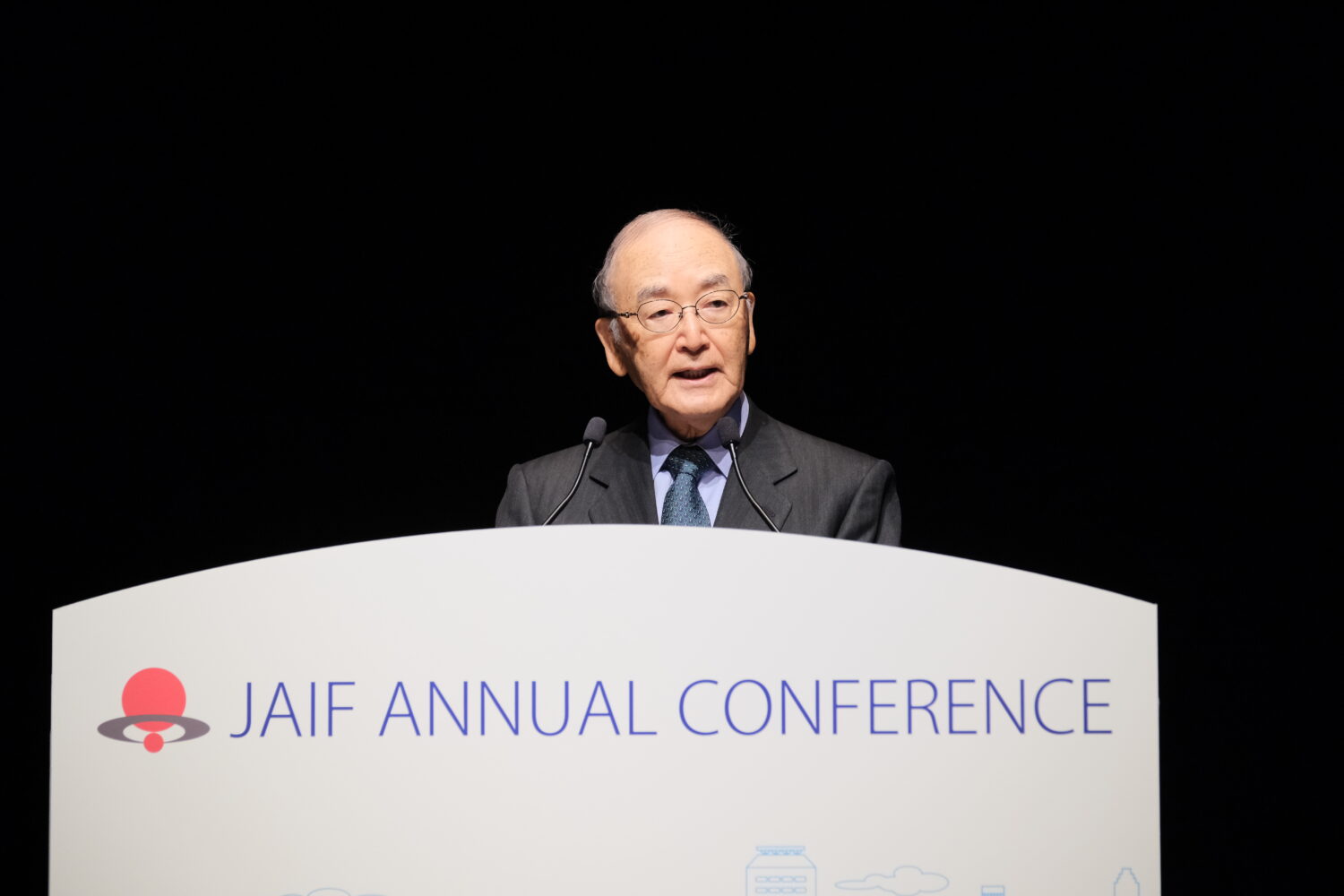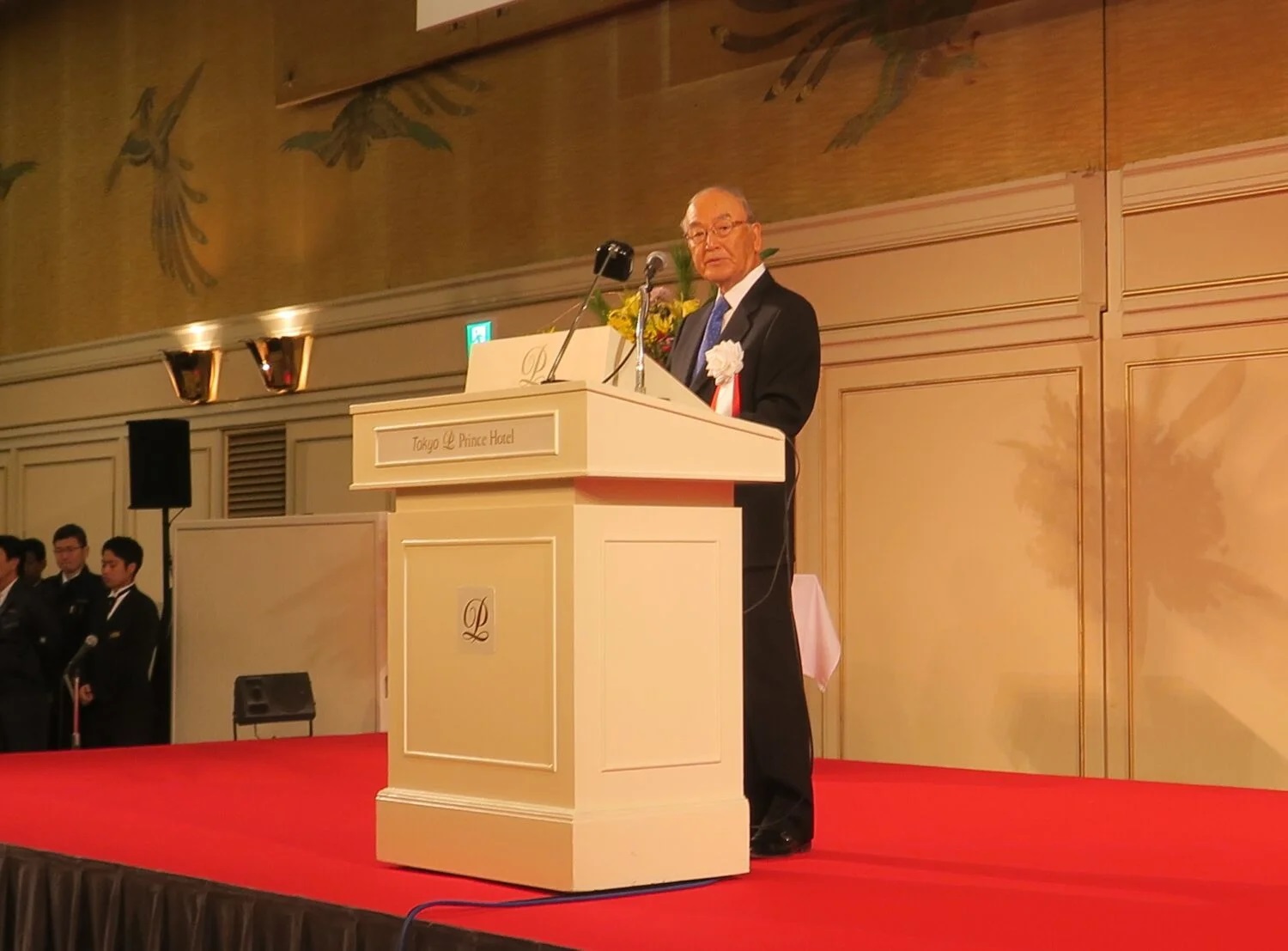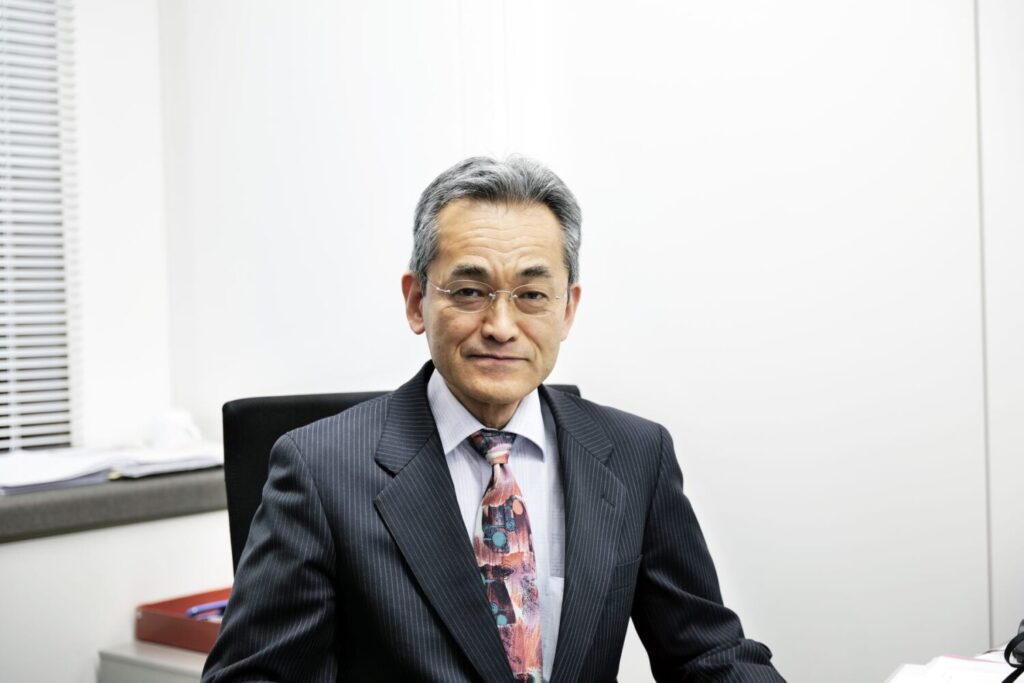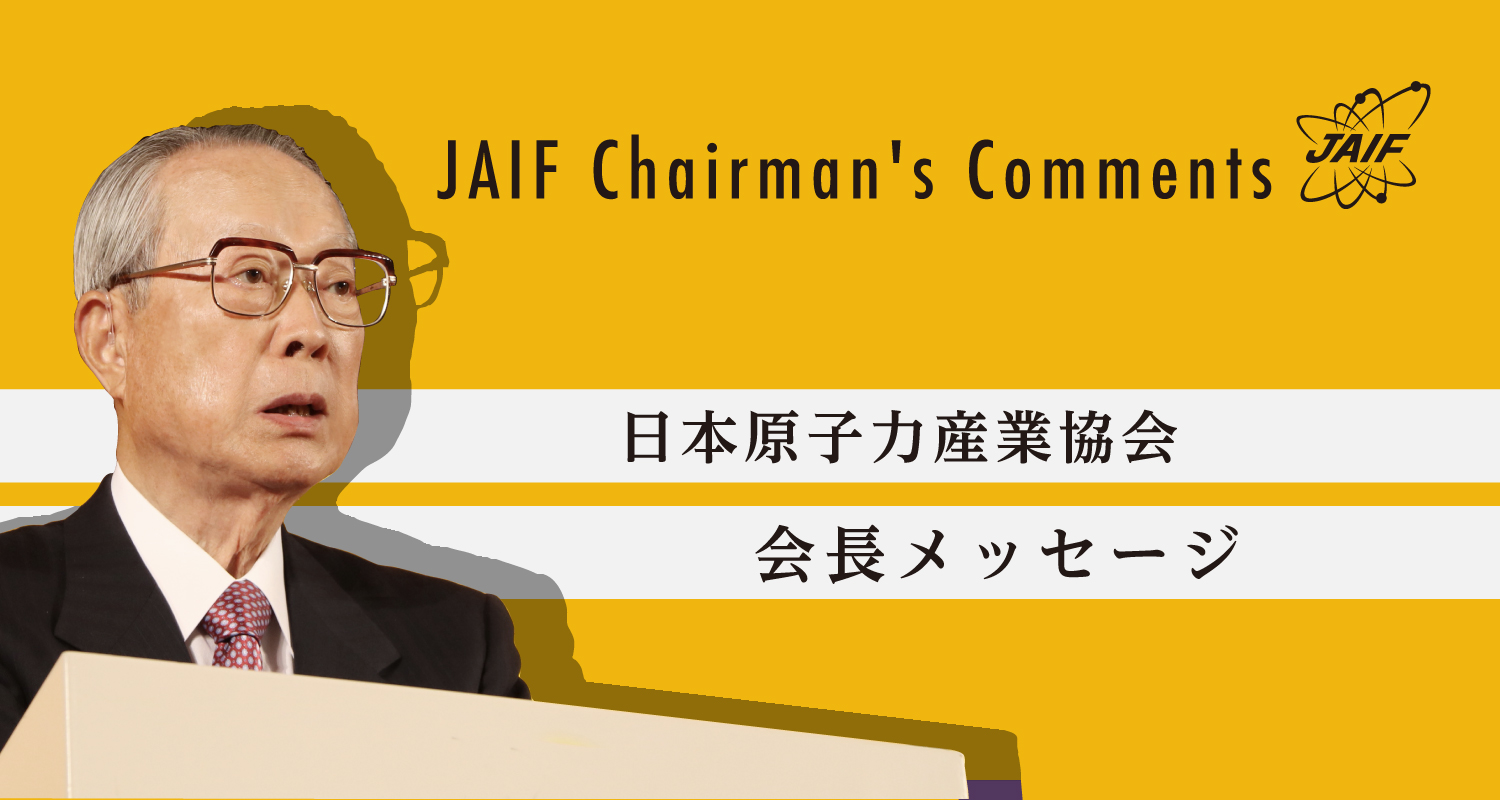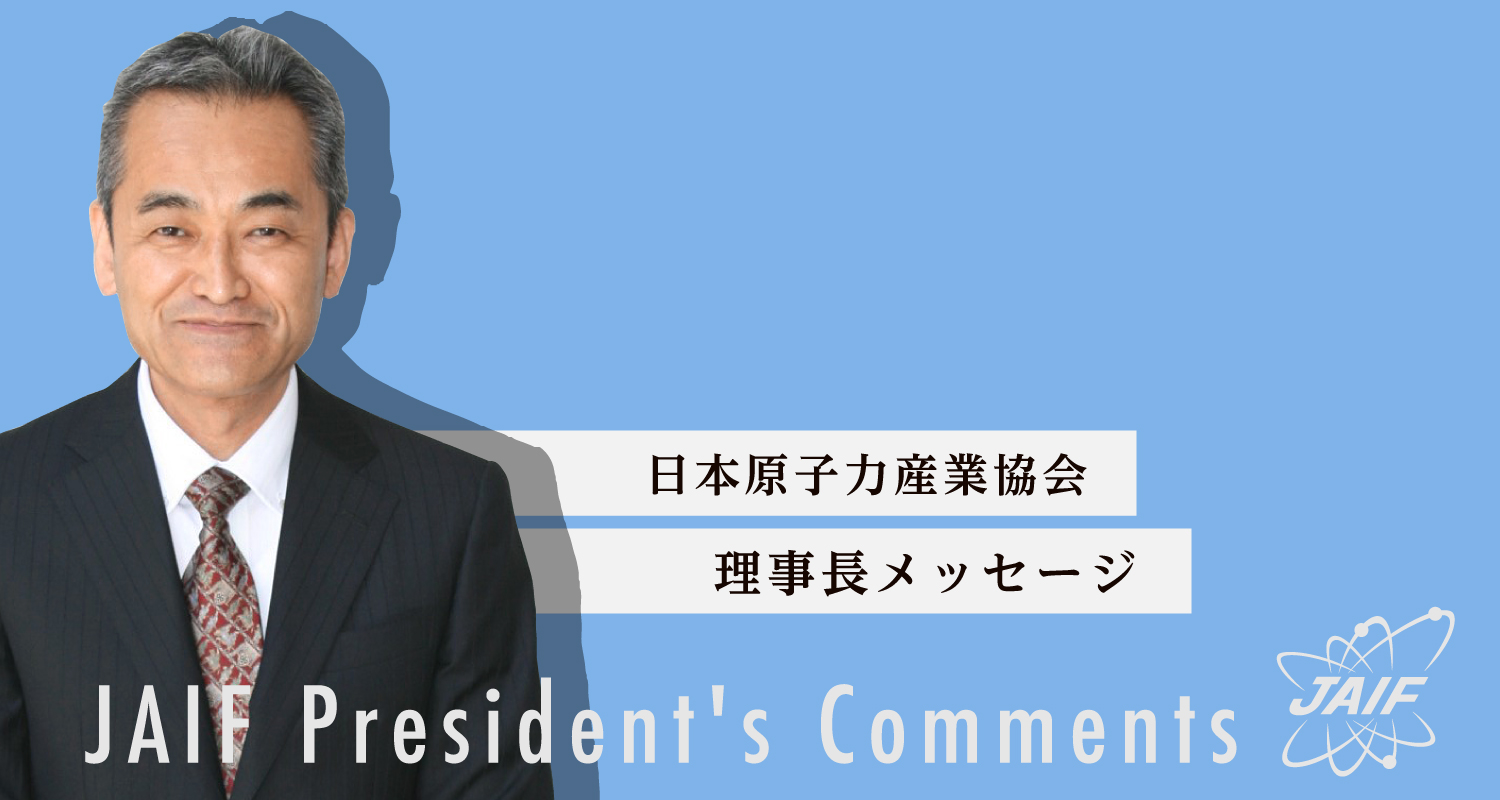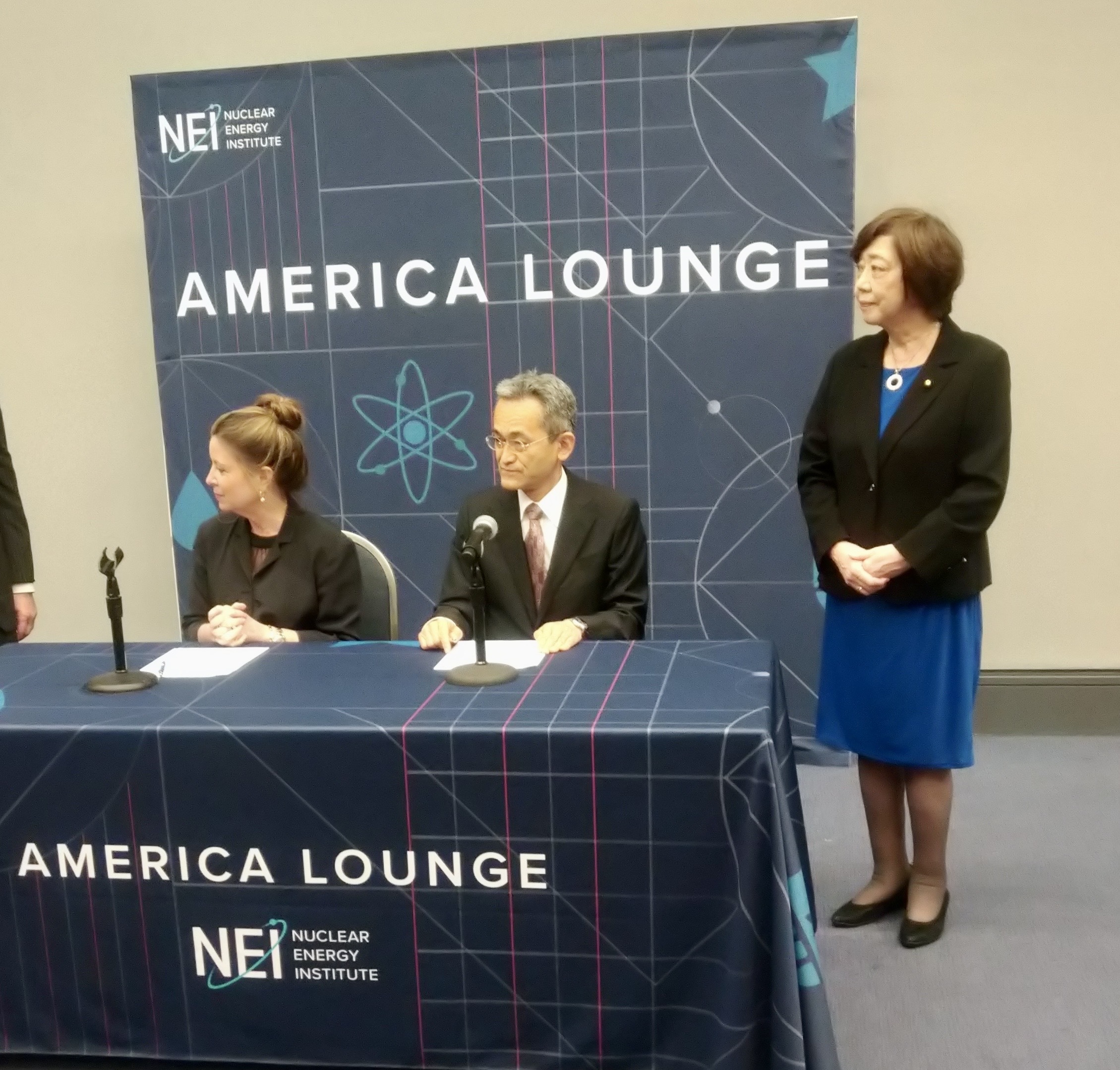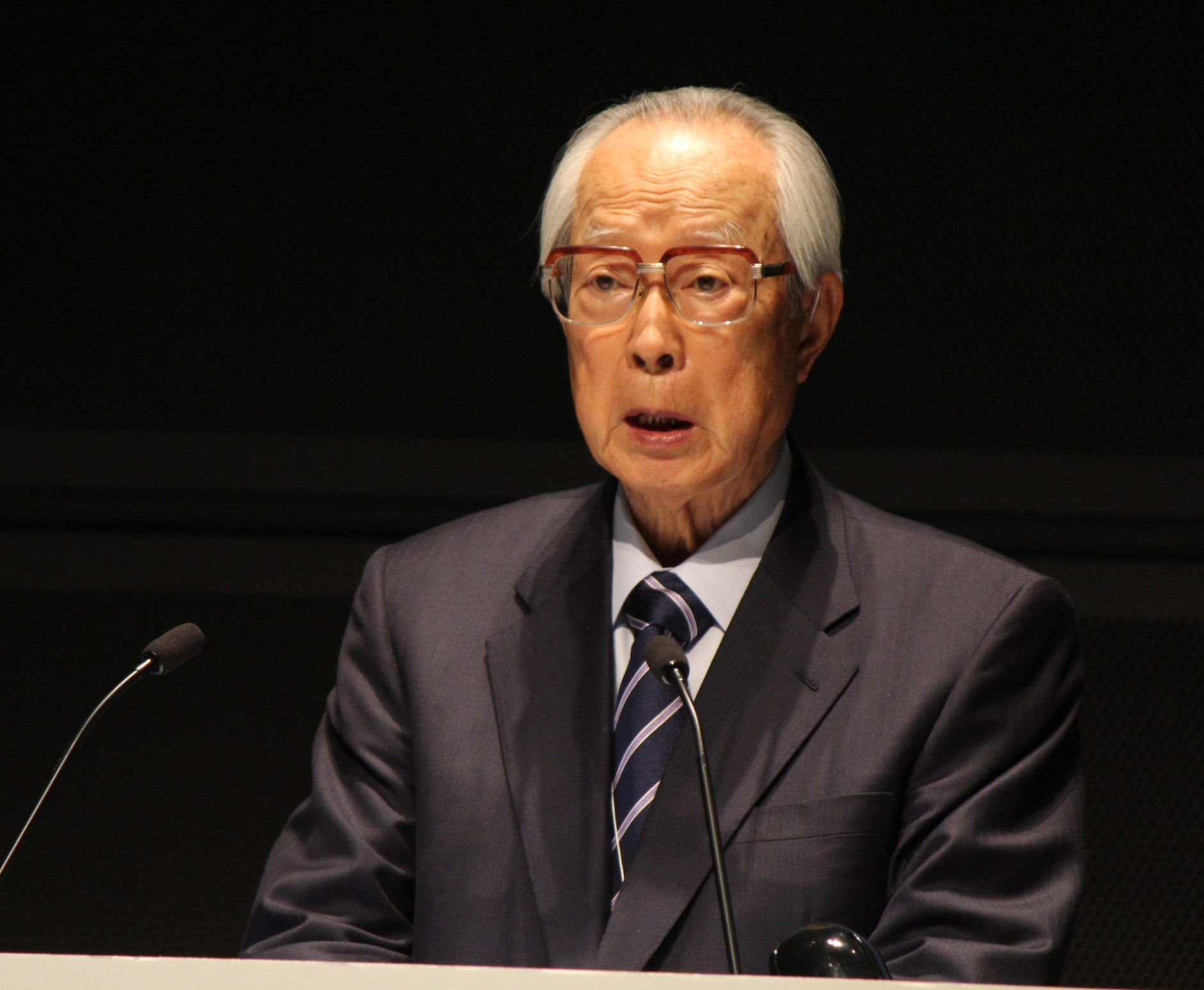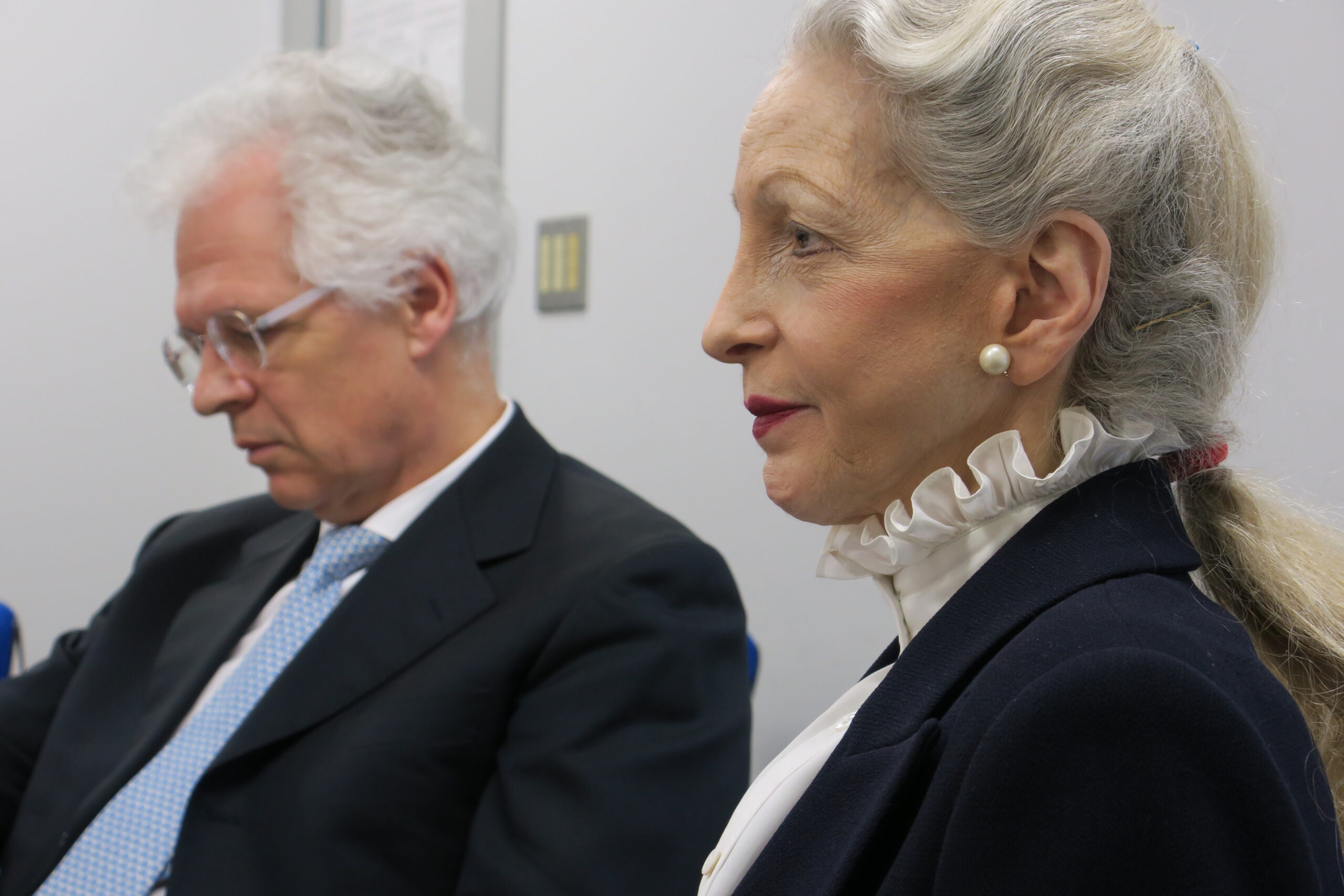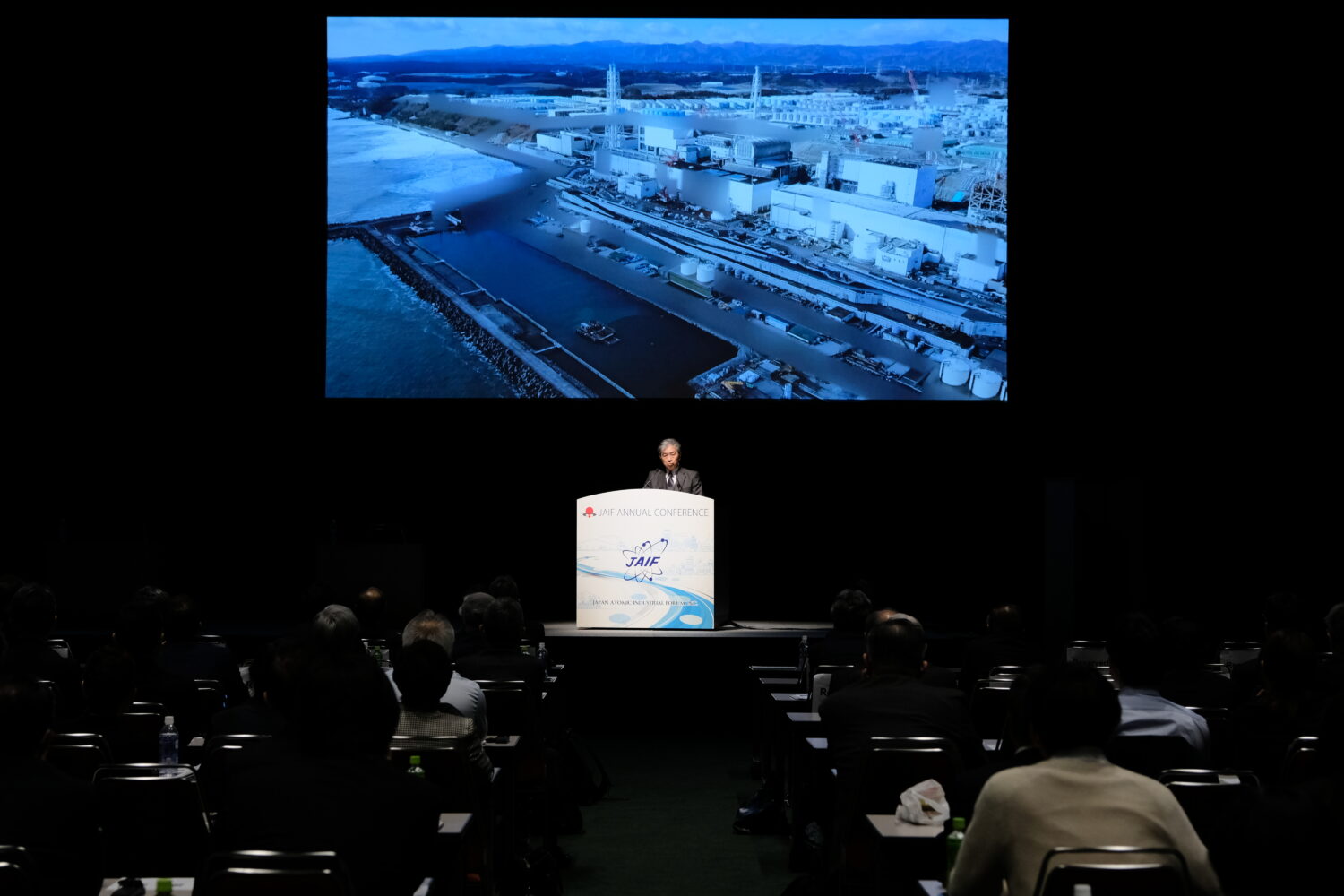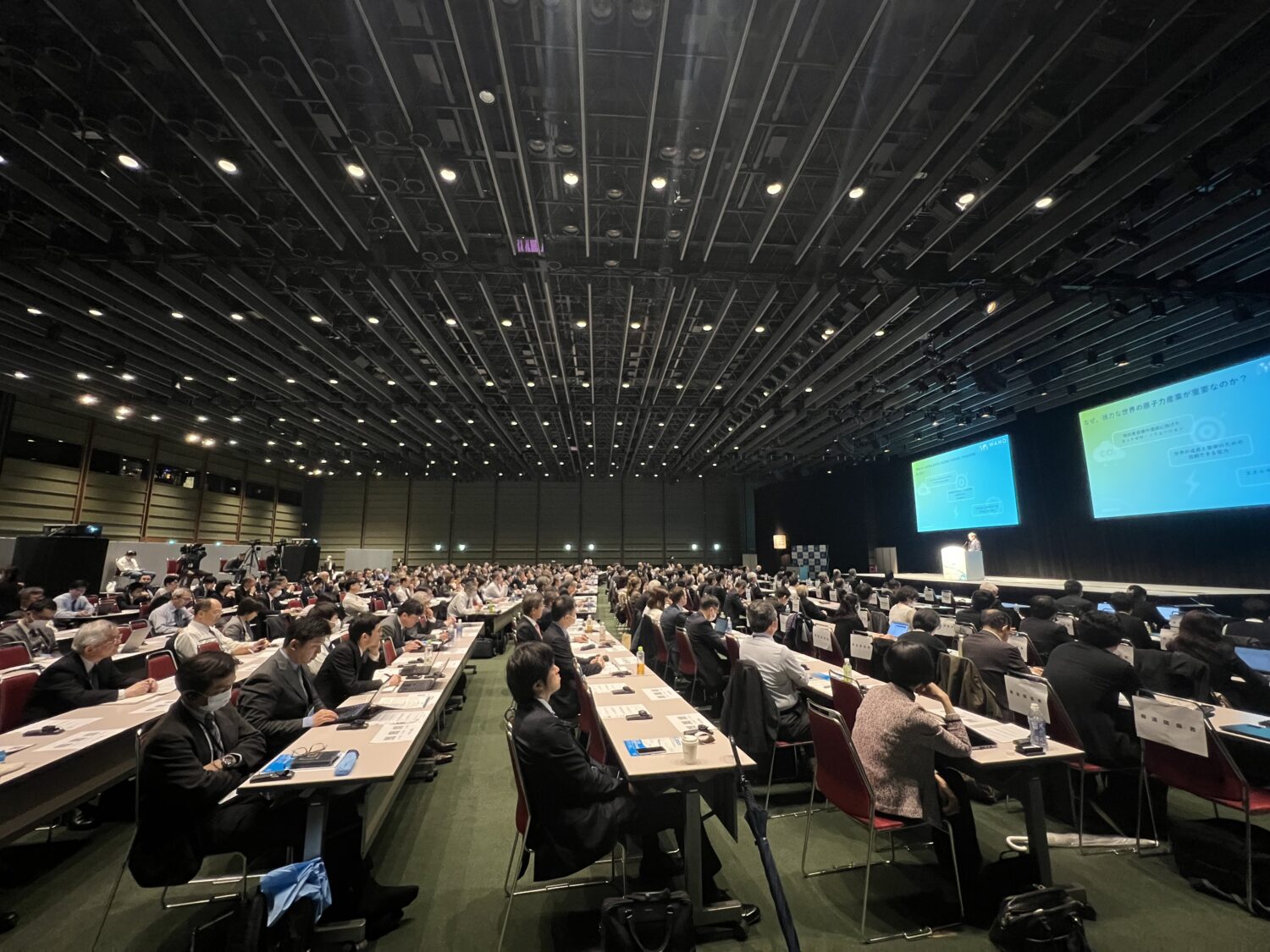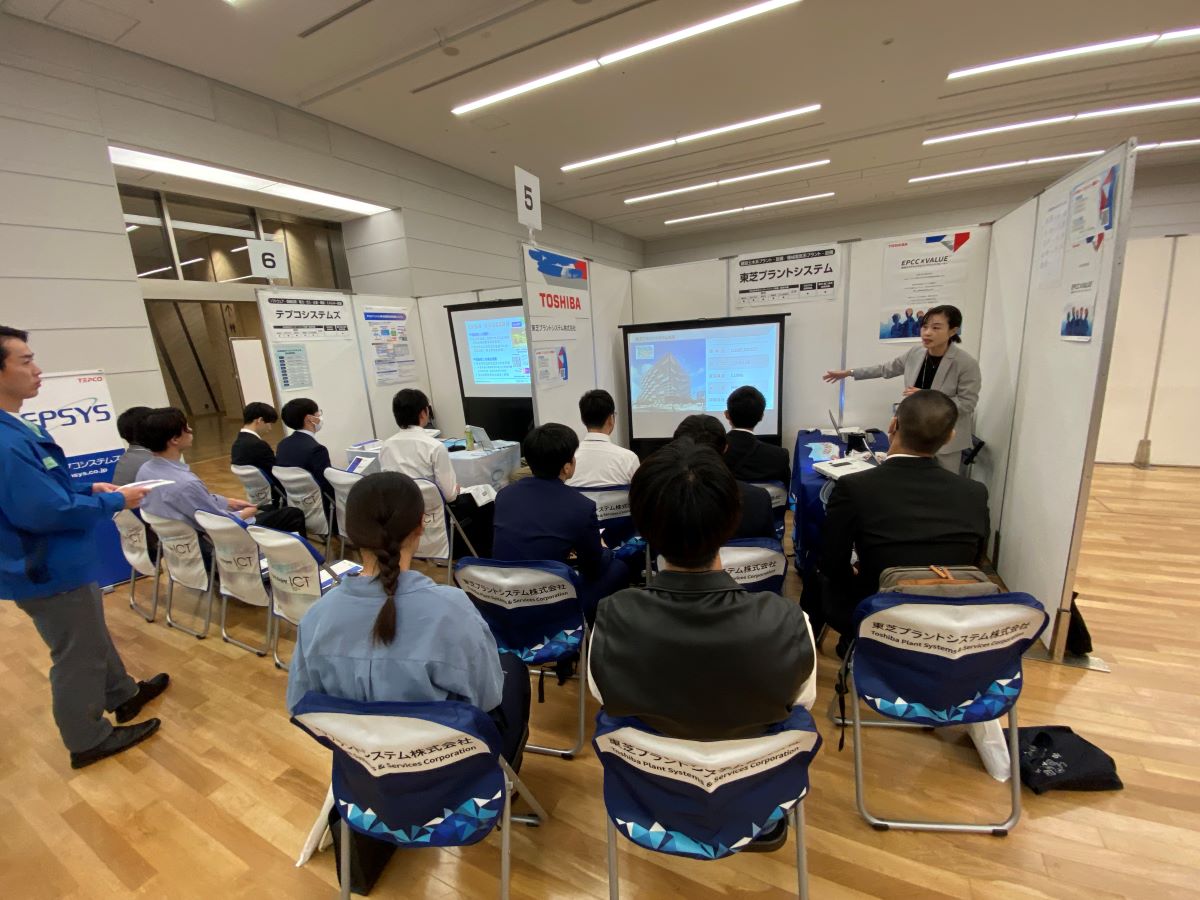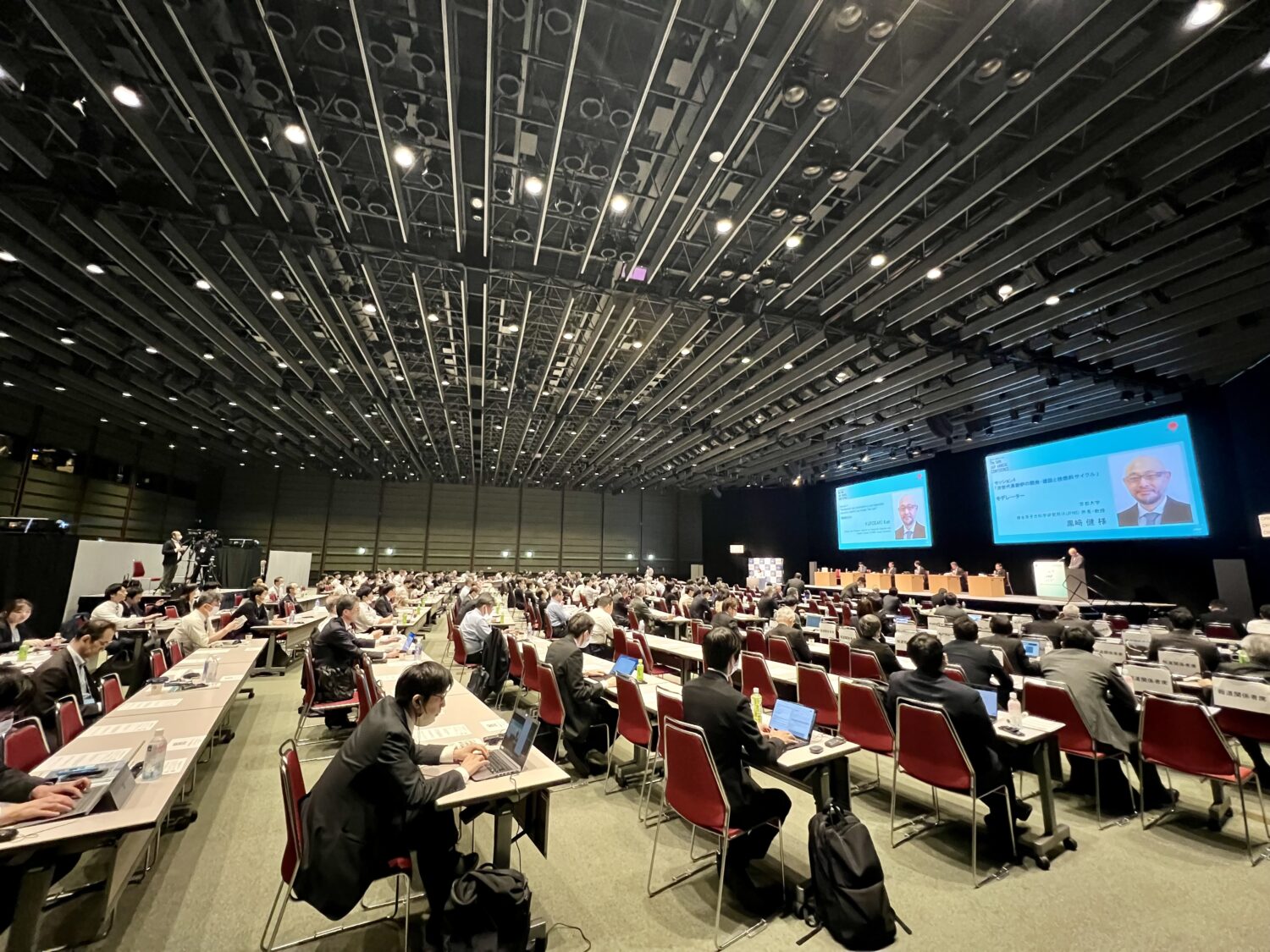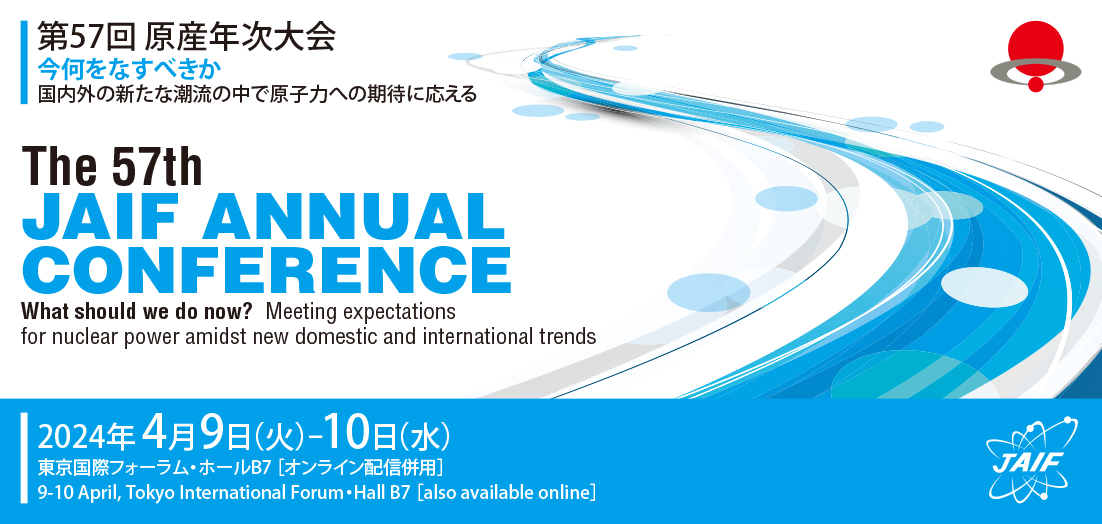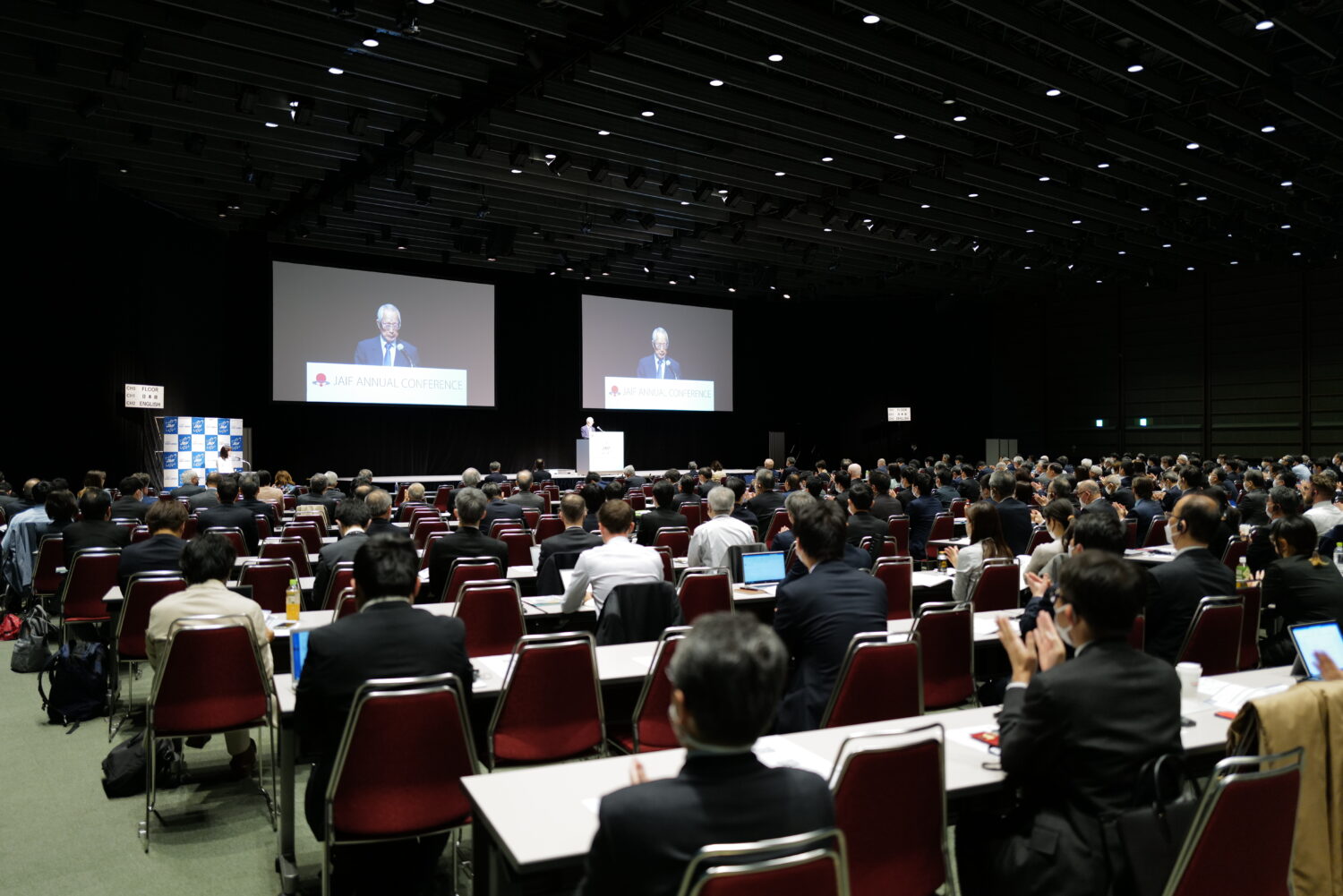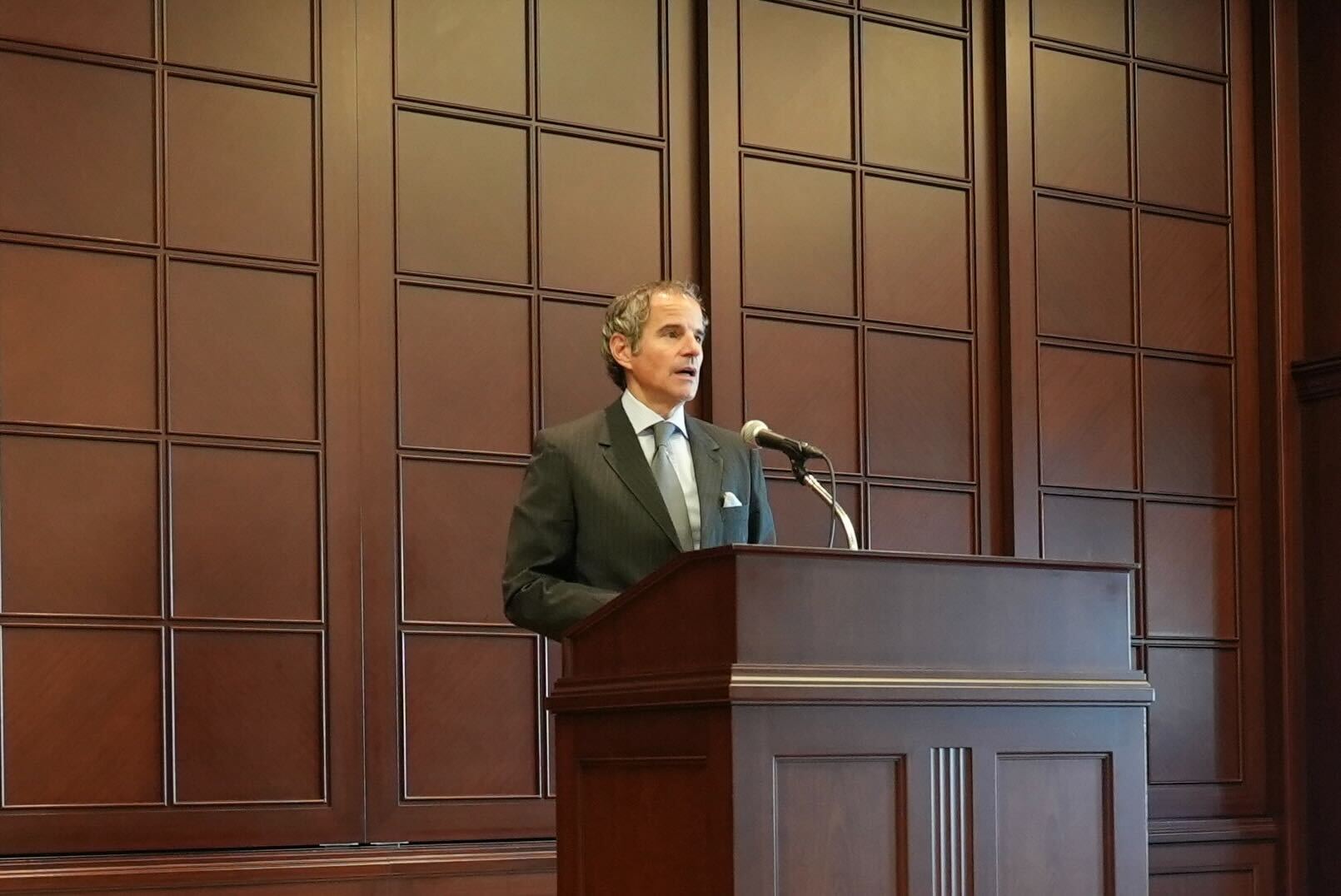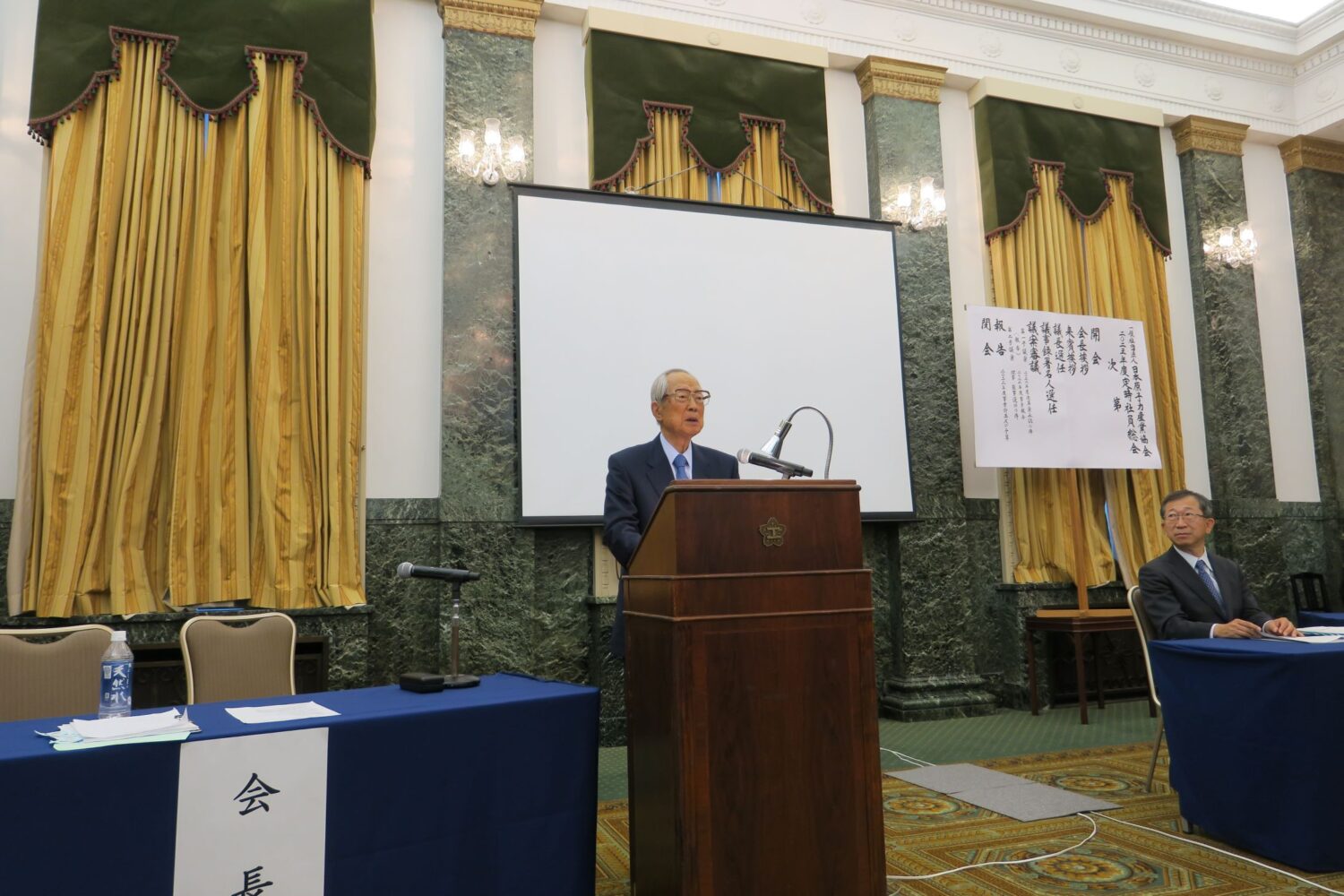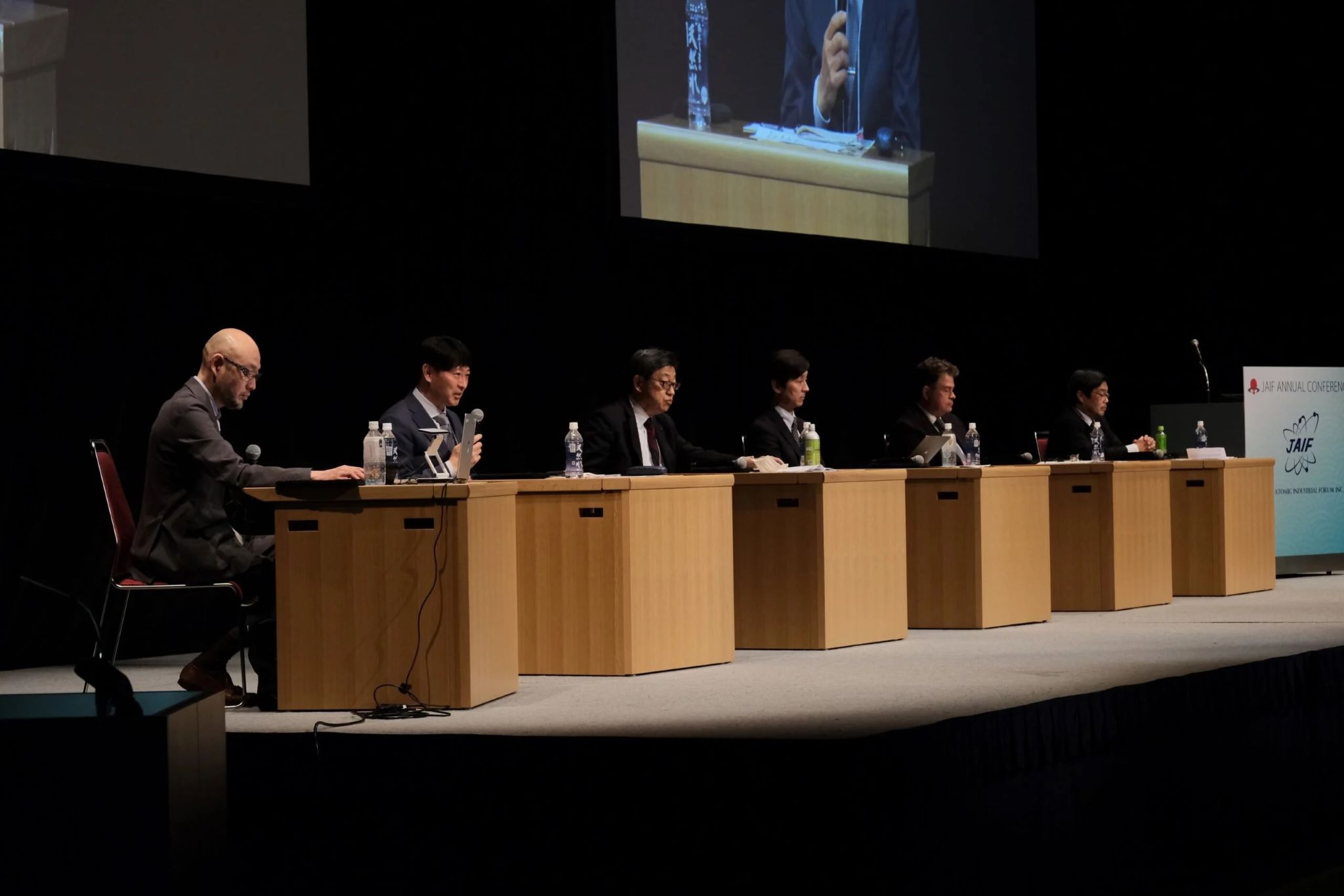In his New Year’s greeting, JAIF Chairman IMAI Takashi emphasized that stable supplies of energy have become urgent challenges for many countries on account of the recent tightening of the balance between energy supply and demand worldwide, along with global inflation as a result of reduced investments in fossil resources and the beginnings of recovery from the economic stagnation brought on by COVID-19; each of those situations, he said, was aggravated by the Russian invasion of Ukraine last February. Globally, the active use of nuclear energy is now obviously the road to achieving carbon neutrality, he said, and no less so in Japan.
Regarding changes in Japan’s nuclear policy in 2022, he praised the government for taking the lead through the Green Transformation (GX) Implementation Council (chaired by Prime Minister KISHIDA Fumio), thereby “taking, at last, the first steps forward.” He called on the government to develop an appropriate business environment, including necessary legislation.
Referring to the offshore release of water treated by the Advanced Liquid Processing System (ALPS) planned for the coming spring, Chairman Imai asked the parties involved to carry the work out with assurance and continue activities to promote public understanding.
As for the Rokkasho Reprocessing Plant—the completion of which has been postponed—he said that those involved should “join forces” to complete it.
Next to talk was a guest speaker, State Minister NAKATANI Shinichi of Economy, Trade and Industry (METI), who said, “Japan boasts a high level of nuclear technology, human resources and robust supply chains, but its strength is being eroded partly because there has been no real construction since the nuclear accident at the Fukushima Daiichi.” Referring to Japan’s vision for participating in projects overseas via public-private cooperation, he affirmed the Ministry’s “full support.” He asked the nuclear industry to focus particularly on the development of human resources.
Also speaking was Chairman IKEBE Kazuhiro of the Federation of Electric Power Companies (FEPC), who looked back on 2022 as a time when everyone had been made keenly aware of the difficulty and importance of securing stable energy supplies. At the beginning of 2023, he said, this would be a year to “rebuild the country’s stable energy supply system and put it into practice.” As a representative of nuclear operators, he expressed their determination to tackle various issues in supply stability and realize carbon neutrality by 2050, thus contributing to societal development and change. He said that he had grand expectations for JAIF’s activities.
At the end, President SHIMADA Taro of Toshiba Corporation led the gathering in a toast.


